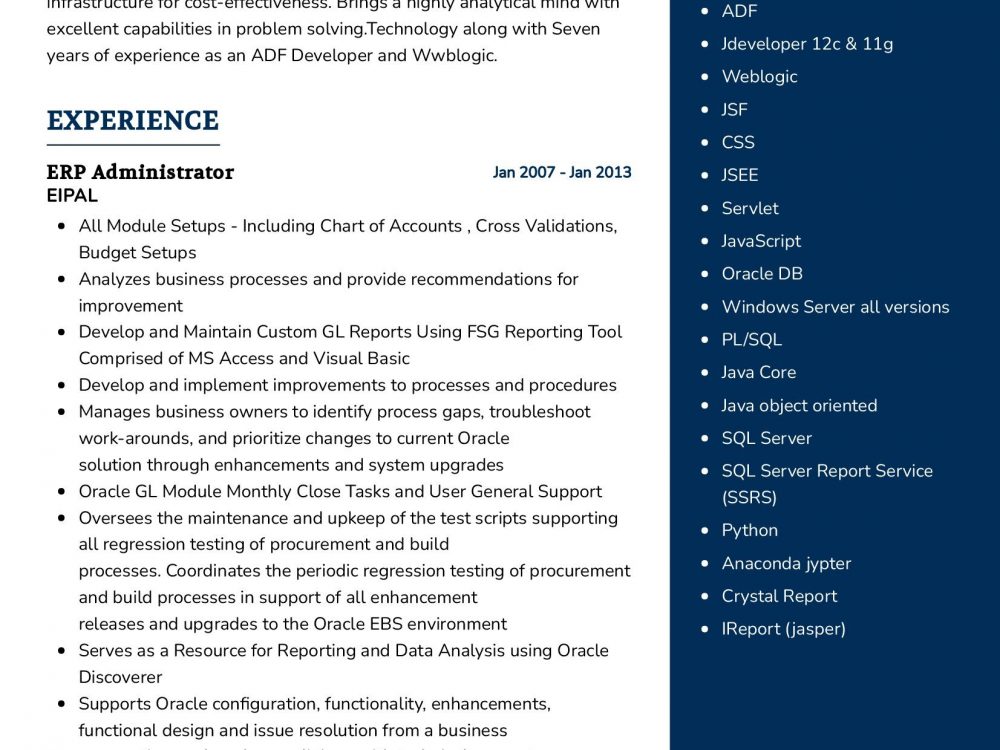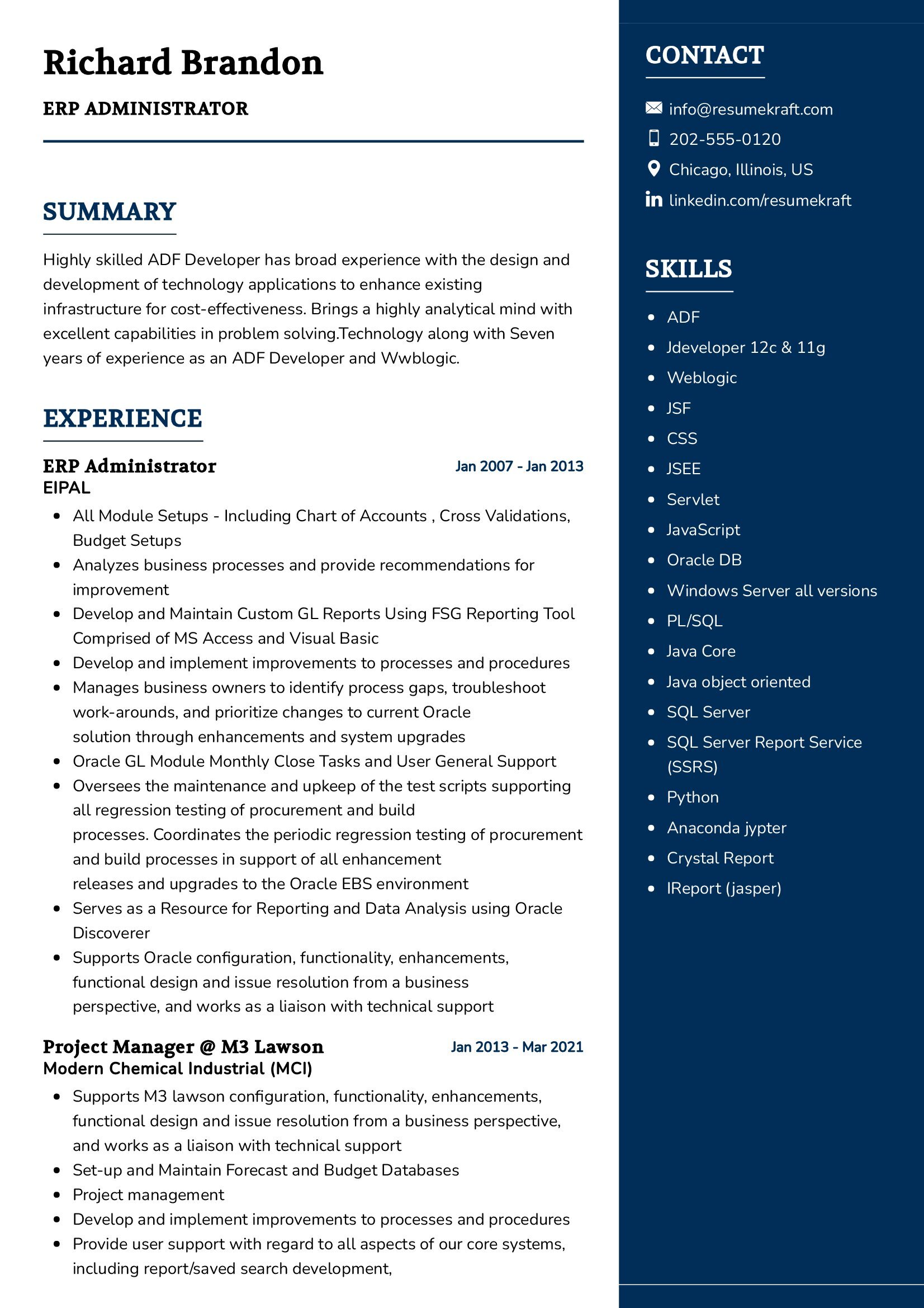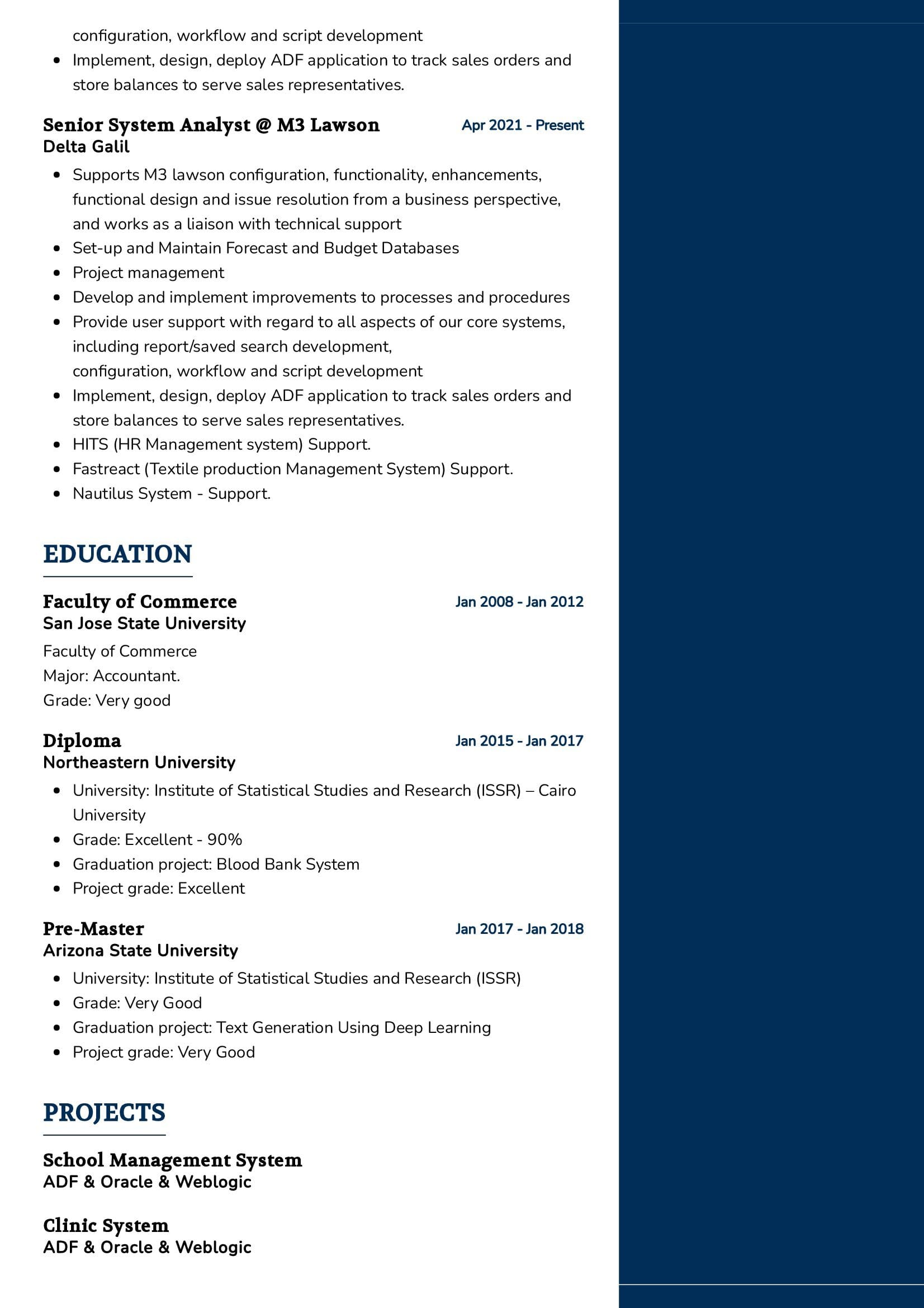Exploring the Role of an ERP Administrator
As businesses embrace digital transformation and rely on integrated systems for streamlined operations, the role of an ERP (Enterprise Resource Planning) Administrator has become indispensable. This position combines technical expertise with organizational prowess, guiding the efficient functioning of ERP systems. In this article, we will delve deeper into the multifaceted role of an ERP Administrator, uncovering the essential job requirements, responsibilities, and resume writing tips.
Key Responsibilities of an ERP Administrator
The responsibilities of an ERP Administrator are diverse, covering a range of tasks critical to the smooth operation of an organization’s ERP system. Let’s explore the core duties that define this role:
- System Configuration and Maintenance: ERP Administrators are responsible for configuring and maintaining the ERP system to meet the specific needs of the organization. This involves customizing settings, workflows, and user access to ensure optimal performance.
- Data Management: Managing and overseeing data within the ERP system is a pivotal responsibility. Administrators must ensure data accuracy, integrity, and security. This includes data entry, data cleansing, and regular data backups.
- User Training and Support: ERP Administrators play a crucial role in providing training to end-users. They help users understand how to navigate the system, input data, and troubleshoot common issues. Effective communication and patience are key here.
- System Upgrades and Integration: Keeping the ERP system up to date with the latest software updates and integrations is vital. Administrators oversee the installation of patches and updates while ensuring compatibility with other software used by the organization.
- Security and Compliance: Protecting sensitive data is a top priority. ERP Administrators implement security measures to safeguard data from unauthorized access or breaches. They also ensure compliance with industry regulations and best practices.
- Reporting and Analysis: Generating reports and analytics from the ERP system is essential for decision-making. Administrators create customized reports to provide insights into various aspects of the business, helping leadership make informed choices.
Each of these responsibilities plays a critical role in the efficient functioning of an organization’s ERP system.
Qualifications and Skills Required
Becoming an ERP Administrator involves meeting specific qualifications and acquiring a set of skills tailored to the role. Let’s take a closer look at the requirements:
- Educational Background: A bachelor’s degree in Information Technology, Computer Science, or a related field is typically required. Some organizations may prefer candidates with a master’s degree for more advanced roles.
- Technical Proficiency: ERP Administrators need to have a strong technical background. Proficiency in ERP software such as SAP, Oracle, or Microsoft Dynamics is essential. Knowledge of database management systems is also beneficial.
- Problem-Solving Skills: Troubleshooting and resolving issues within the ERP system require strong problem-solving skills. ERP Administrators must be adept at identifying and addressing technical challenges.
- Communication Skills: Effective communication is vital when providing user support and collaborating with other departments. ERP Administrators should be able to explain technical concepts in a clear and understandable manner.
- Project Management: Managing ERP system upgrades and integrations often involves project management. Administrators should be skilled in project planning, execution, and monitoring.
- Attention to Detail: Precision is key in data management and system configuration. ERP Administrators must have a keen eye for detail to ensure data accuracy and system reliability.
Securing certifications in ERP software and related fields can enhance your profile and competitiveness in the job market.
Crafting Your ERP Administrator Resume
Your resume is your ticket to landing the ERP Administrator role you aspire to. Here are some tips to create a compelling resume that showcases your skills and experiences:
- Highlight Your Technical Expertise: In your resume’s skills section, emphasize your proficiency in ERP software and database management systems. Mention any relevant certifications you hold.
- Showcase Achievements: Instead of simply listing job duties, highlight specific achievements. For example, mention how you successfully upgraded the ERP system, resulting in improved efficiency and cost savings.
- Quantify Your Impact: Use numbers to quantify your contributions. For instance, mention that you trained 50+ employees in using the ERP system, leading to a 30% increase in data accuracy.
- Customize for Each Application: Tailor your resume for each job application by aligning your skills and experiences with the specific requirements of the role.
Your resume is your opportunity to make a strong first impression, so make it count!
Conclusion
As organizations increasingly rely on ERP systems to streamline their operations, the role of an ERP Administrator has never been more critical. ERP Administrators are the guardians of data integrity and system efficiency, ensuring that businesses can make informed decisions based on accurate information.
If you aspire to become an ERP Administrator, start by acquiring the necessary qualifications and honing your technical skills. Embrace the responsibilities of the role with dedication and precision, and don’t forget to showcase your achievements on your resume.
Remember, your journey to becoming an ERP Administrator begins with the right education and skills, and your resume is the key to opening the doors to this exciting career.
Finally, feel free to utilize resources like AI Resume Builder, Resume Design, Resume Samples, Resume Examples, Resume Skills, Resume Help, Resume Synonyms, and Job Responsibilities to create a standout application and prepare for the ERP Administrator job interview.



